Near the city of Bobo-Dioulasso, the second biggest of Burkina Faso, is a very important site to the local community. The site of Dafra, a water source, is claimed to be a very powerful site for animist rituals. The name of the site means Grandfather in the Bobo language. However, fish are so important to that ethnic group that grandfather is also how they call fish.
The local legend goes that after a tough war with neighbouring communities, the Bobo came back to the lands of Sia, now called Bobo-Dioulasso, and were unable to find water and a place to rest, war-weary as they were. It is only after a long search that they were finally led by animals to the water source which would become Dafra. Grateful to the local spirits, it was decided that Dafra’s waters would stay untouched and that the fish living in its water would be not be killed or fished but rather given offerings to.
Getting there

Nowadays, many people go to Dafra when they have favours to ask the spirits. Naturally, rituals and offerings being very YPTesque, we had to make this place a fixture of our itineraries so we headed out of Bobo-Dioulasso into the countryside, as far as the 4WD would take us. At a point of about one kilometre away from the site, it is not possible to drive any longer and a short trek had to be made. The trek is short and pleasant and the scenery is nicknamed “Little Dogon Country” as the rock formations there are not without remind the formations found in the middle of Mali. Including the drive from Bobo Dioulasso and the trek, it takes less than an hour to get to Dafra.
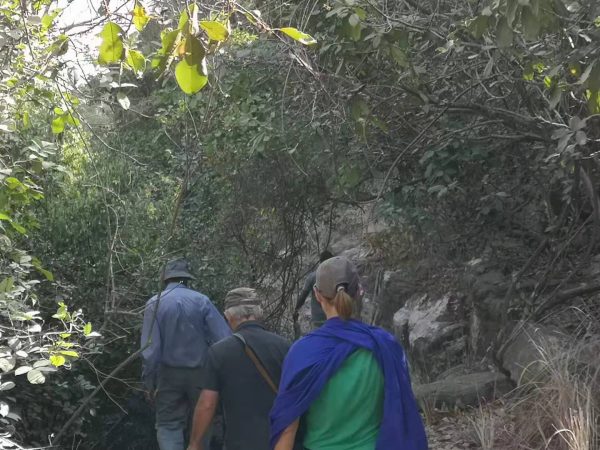
The ceremony
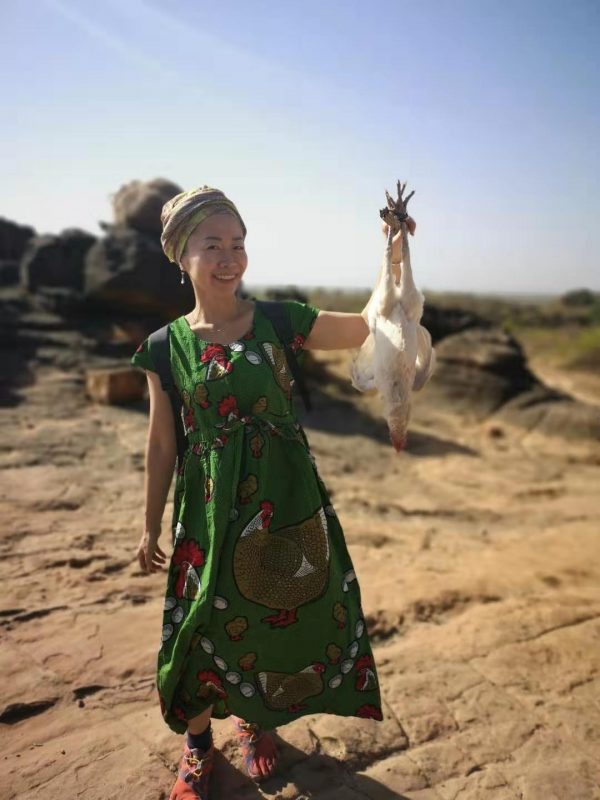
Reaching the site, as our local guide was calling the spirits by screaming “Dafra” and knocking on wood, we found a man carrying a goat on his shoulders. It was then that we were introduced to the whole process. People who have a wish, such as fertility, finding a job, bountiful harvest and so on, come to Dafra to slit a chicken’s throat on an altar. The chicken’s blood is dropped on the floor, and goes to the ancestors while the person making the sacrifice formulate their wish in their mind as well as a promise, such as “if my wish is granted, I will build a well in my village”. Then, the chicken is thrown on the floor. If the chicken falls on its back, it is auspicious. If it falls on its belly, however, it might mean that the person making the sacrifice is not ready, maybe his or her soul impure at the moment, to make an offering. (This didn’t stop some of the people we saw there from throwing their chicken again, in a 2 out of 3 kind of thing)
Speaking of the people, one can easily feel that their beliefs are still very strong. The atmosphere in Dafra is very tense, with some things, such as photos and wearing the colour red, being taboo and forbidden. The locals there mean business. The site sees a lot of people, with the floor being covered in caked blood and feathers.
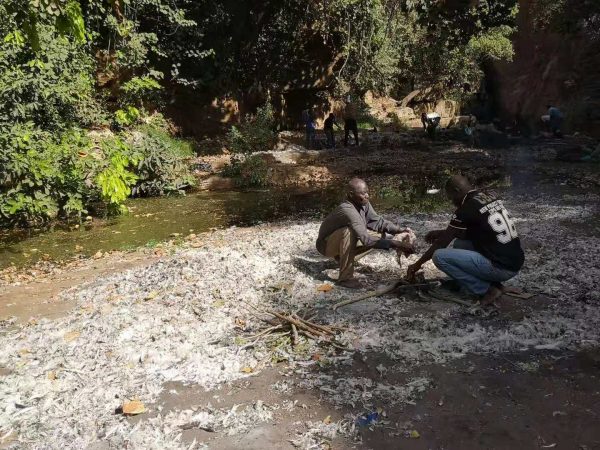
After having slit the chicken’s throat, local officiants are brought the chicken, which is then eviscerated. The intestines of the chicken are given to the person who came to make the offering at that person moves to the actual pond. The pond is filled with catfish which are really plump, the biggest catfish I have ever seen. And you’ll understand why. In the next step of the process, chicken intestines are thrown into the pond for the fish, the fish throw themselves voraciously at the innards of the poultry, like sharks.
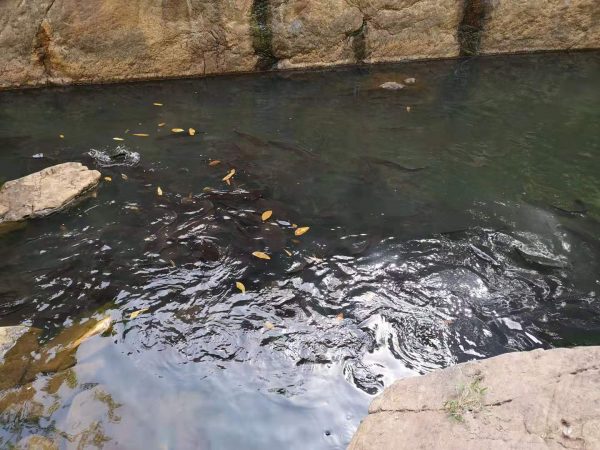
At this point, the person who made the offering goes home, with the wish being expected to be granted within two weeks. If the wish is granted, the person then has to fulfill their promise as soon as possible, or bad luck will certainly fall upon them. Once the promise is fulfilled, the people come back to the pond, with a bigger offering, such as the goat we saw on a man shoulders’ earlier on, slit its throat in thanks to the ancestor and feed the fish with the innards. And the meat of all these chickens, goats and cows? It goes to the officiants and their family.
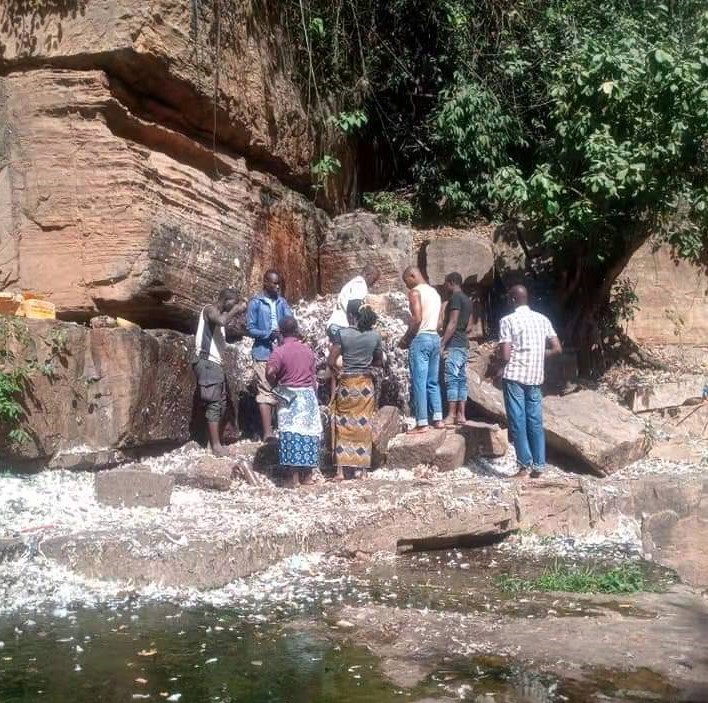
While we didn’t make any wishes, thinking that it would be a bit of a hassle to come back to bring a goat on our shoulders in two weeks, witnessing animist rituals in this day and age was a unique and very raw insight in a culture that still hasn’t vanished in the face of the now prevalent Islamic and Christian beliefs of West Africa.





